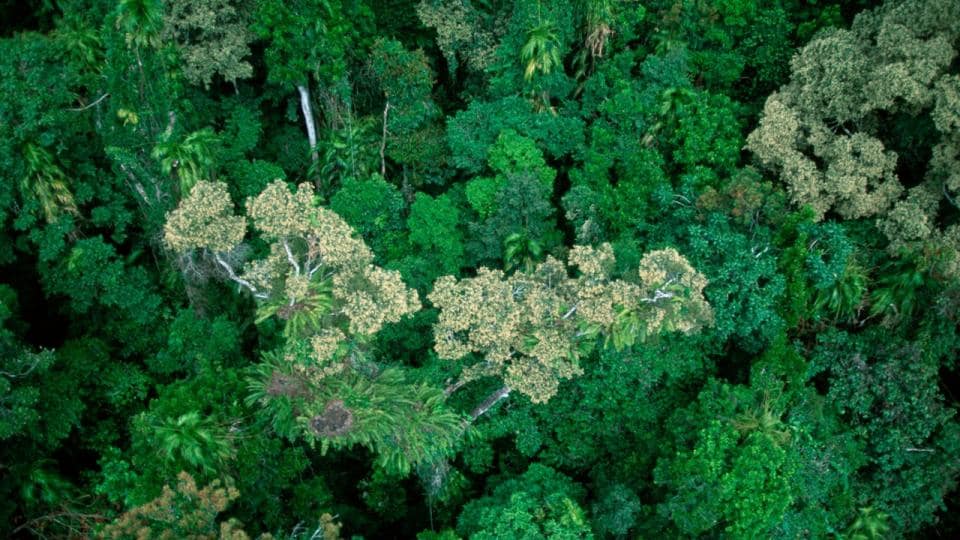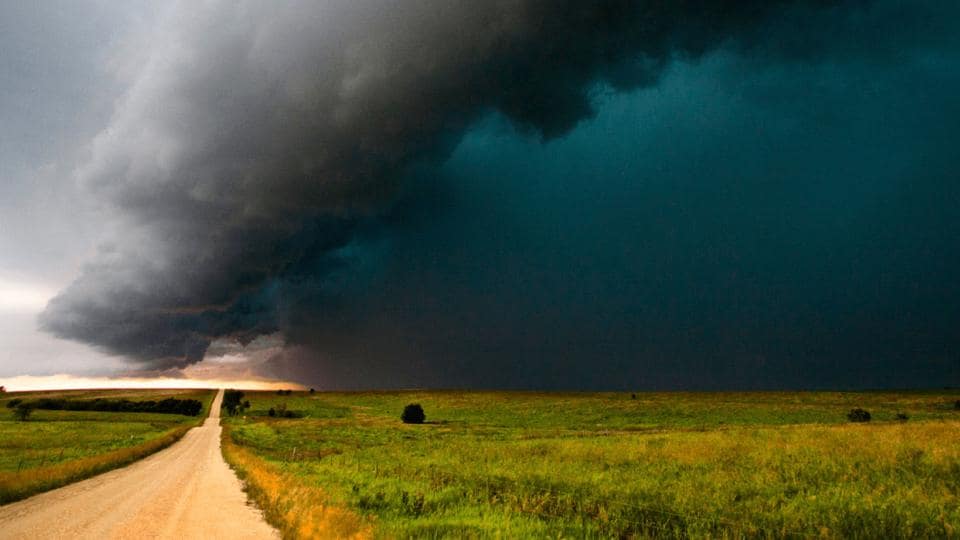"Mother Nature Has The Last Word"

Bernd Olligs is a sixth-generation farmer. He and his family run the Damianshof Farm in the Lower Rhine region. He says: A farmer always wants to work sustainably. He also says: Most people don’t have any idea how farms work. Now he tells his story.
To me, being a farmer means taking responsibility. I want to conserve the land. Not just for my family, whom I feed through my work. But also for the generations that come after us. My biggest fear as a farmer is that my grandkids someday say: “Boy, Grampa did a really bad job.” I can’t allow that to happen. Most of the farmers I know think the same way. They think of the next generation and the one after that. They think in terms of the future.
It’s not just about us. It’s about the common good. What we have inherited isn’t here to be used up. Our task is to maintain it, nurture it and increase it.
Since 1845, my family has operated Damianshof Farm in Deelen, a village that belongs to the municipality of Rommerskirchen. We work about 115 hectares of land. Sugar beet, potatoes, winter wheat, canola and winter barley. We stopped keeping animals a long time ago. If specialists want to know, our soil is deep livusol with a ten-to-twenty meter layer of loess.
Damianshof Farm is located on the boundary between the Rhineland and the Lower Rhine. On the flagpoles in the village fly the flags of FC Cologne, Fortuna Düsseldorf and Borussia Mönchengladbach.
I love my profession for many reasons. It’s the best job on Earth. I enjoy being outside. I like its diversity. There’s always something to do. Every day is different.
My family’s life revolves around our farm. My older brother and I always have something to discuss with our father Urban, who was born in 1933. There are sometimes differences of opinion between the generations. When my grandmother turned 80, we were sitting in the living room when a debate broke out about some problem involving the beets. Farming is sometimes like sailing: everyone wants to get to the same destination, but one would rather tack to the left while the other believes the better course lies to the right. Our grandmother then said: “Let the youngsters make the decision. They’ve got it under control.” Then we had some cake.
Farming has always been important in our village. People ride their bicycles around and take a look at what’s going on in the fields. Did they plow cleanly? Which farmer is furthest along this year? Church, soccer, farming – those are the conversation topics in our town. My first memories of farming go back to when I was six or seven years old. Cutting beets by hand. I loved it. Five or six people in a row, and it was all about working together so that the line stayed straight. Everyone had to keep pace.
Back then the days always progressed according to the same rhythm, which depended on the daylight and the weather. We ate breakfast and lunch together, and always at noon. Like in many farming families, I can’t remember a real vacation. But I do remember sitting on the tractor for the first time. I must have been ten years old.
- 1/3
- 2/3
- 3/3



When I speak with my dad about how things were in his day, I have to admit: even tougher. The farmhouse flooded at least twice at the beginning of the 19th century when it belonged to the previous owners. They dismantled it, removed it from the hollow and rebuilt it a few hundred meters away, where it stands today. From a modern perspective, it’s almost impossible to conceive of how people worked the land back then with plows. Today people wouldn’t be able to physically withstand it.
The times are different nowadays. We operate much larger machinery. Modern machines have taken the work off our hands. I handle most things completely on my own. We have crop protection products to help us, and we desperately need them. Climate change, about which there is so much debate, long ago became a reality for us farmers. I can demonstrate that through the weather records I took over from my mother. Between 1970 and 1990, there was not a single day on which she read more than 20 liters of rain. In recent years there were days on which she jotted down 60-70 liters. And then there are the extremes: in May 2016, for example, we had 250 liters per square meter. It just didn’t stop raining. We experienced the contrast to this during the hot, extremely dry summer of 2018, which was followed by a drought.
I didn’t get a single good night’s sleep during that period. It was stressful for all of us, including my family. You could hardly talk to me. Without the technical machinery and the chemical auxiliaries we have at our disposal today, we would have been left with nothing. The entire harvest would have failed. Nothing would have remained. In the past that would have resulted in a famine. Crop protection products help farmers protect their harvests.
| NEXT PAGE | "We Farmers Work With Hearts And Minds" |




















